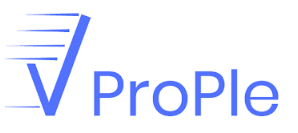This website use cookies to help you have a superior and more relevant browsing experience on the website.
Tag: technical interview as a service india
How to Handle Unexpected Surges in Hiring: Scalable Interview Strategies
Unexpected Surges in Hiring: A complete guide to managing high-volume hiring surges using automation, structured interviews, scalable recruitment processes.
read moreFuture of Hiring: Emerging trends in interview tech, remote work & global talent
Future of hiring: Know how AI, remote work, and skills-first hiring are reshaping. Learn the trends HR leaders need to build a global, agile talent strategy.
read moreHidden Costs of Unstructured Interviews.
Hidden costs of Unstructured interviews: This may feel natural, but they quietly undermine hiring quality, diversity, and fairness.
read moreThe Vanishing Act: Why Your Best Candidates Are Ghosting You (And How the Tables Have Turned)
The Vanishing Act: Discover why candidates keep ghosting HR in 2025: 10 deep insights revealing the real causes, from hiring delays to poor communication and culture gaps.
read morePOV: You’re Reading 500 Résumés That All Say ‘Team Player’
Tired of seeing “team player” on every résumé? Discover why buzzwords fail, how they create recruiter fatigue, and what candidates should do instead. Learn how to replace clichés with numbers, context, and real impact to make resumes stand out in a sea of sameness.
read moreHiring the Right Candidate: From Nightmare to Opportunity
Hiring the Right Candidate: Discover the hidden gaps in today’s hiring—from bias to rising costs—and how Interview-as-a-Service can transform recruitment into a growth driver.
read moreGamification in Hiring: How Gamification is Changing the Hiring Process
Gamification in hiring is transforming recruitment by making hiring more engaging, fair, and data-driven. Discover how companies use game-based assessments to attract top talent, reduce bias, and improve candidate experience.
read moreAI Interviewers: Can You Pass the Robot Vibe Check?
AI interviewers are transforming hiring by using NLP, facial recognition, and voice analysis to evaluate candidates. Discover their pros, cons, ethical concerns, and tips to pass the “robot vibe check” with confidence.
read moreFrom Ambiguity to Accuracy: Transforming Hiring Quality Through Clarity
From Ambiguity to Accuracy: Transforming Hiring Quality Through Clarity — discover how structured interviews and expert calibration calls drive better hiring outcomes.
read moreStartups Hiring Pain Points: The Complete Guide to Interview-as-a-Service Opportunities
Startups Hiring Pain Points: From time-intensive recruiting to rushed decisions and talent competition, discover how Interview-as-a-Service solves these challenges with speed, quality, and cost efficiency.
read more











